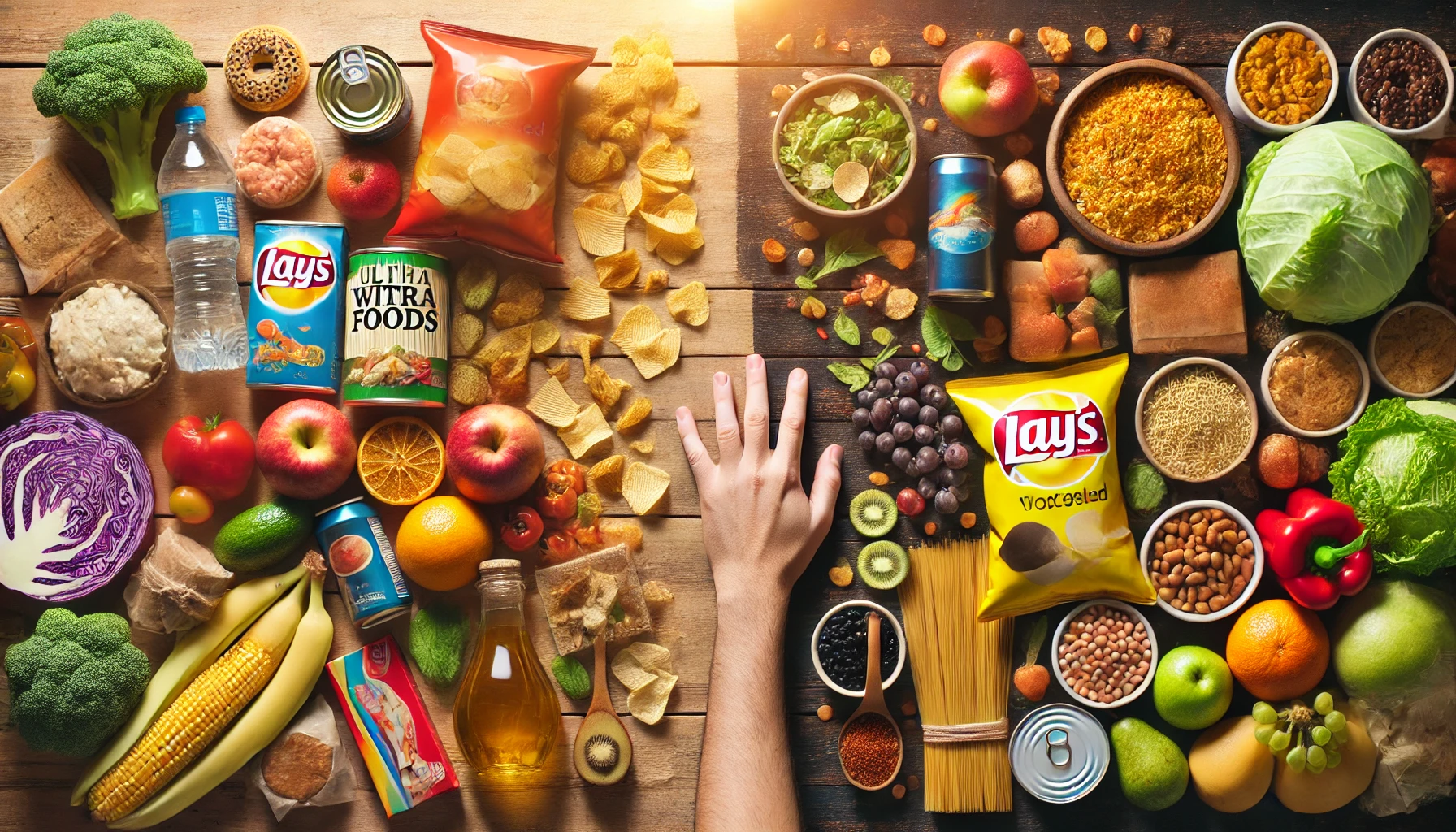You’ve likely heard the term “ultra-processed foods” more and more lately. They’re convenient, often tasty, and everywhere—from breakfast cereals to frozen meals to those snacks that seem impossible to stop eating. But behind their convenience lies a growing body of research showing how harmful they can be for your health.
In this article, you’ll learn what ultra-processed foods really are, why they’re so damaging over time, and how to make smarter, simpler choices to reduce your intake—without obsessing or restricting.
1. What Are Ultra-Processed Foods?
Ultra-processed foods are industrial formulations made mostly from substances extracted from foods, often with added chemicals, flavorings, colorings, preservatives, and emulsifiers.
They typically contain:
- Refined sugars or syrups
- Refined flours
- Hydrogenated oils
- Artificial flavors or sweeteners
- Additives to enhance color, texture, or shelf life
Examples include:
- Packaged snacks (chips, cookies, candy bars)
- Sugary breakfast cereals
- Soda and energy drinks
- Instant noodles or boxed pasta meals
- Frozen pizzas and ready-to-eat meals
- Processed meats (hot dogs, sausages, deli meats)
These are not the same as minimally processed foods like frozen vegetables or canned beans without additives, which can be part of a healthy diet.
2. Why Are Ultra-Processed Foods Harmful?
They’ve been linked to a wide range of health issues, including:
Weight Gain and Obesity
These foods are calorie-dense, low in fiber and nutrients, and designed to be overeaten.
Increased Risk of Chronic Diseases
High consumption is associated with heart disease, type 2 diabetes, hypertension, and even certain cancers.
Poor Mental Health
Studies show links between ultra-processed diets and depression, anxiety, and fatigue—due to their effects on blood sugar, gut health, and brain chemistry.
Addictive-Like Behavior
They are engineered to target the brain’s reward system, making you crave more while feeling less satisfied.
3. How to Identify Ultra-Processed Foods
Always check the label. Look out for:
- Long ingredient lists (especially with names you don’t recognize)
- Artificial flavors, colors, and preservatives
- Added sugars in all forms (syrup, maltodextrin, fructose, etc.)
- Hydrogenated or refined oils
- Unnatural textures or shelf life far beyond fresh food
Rule of thumb: If your great-grandmother wouldn’t recognize it as food, it’s probably ultra-processed.
4. How to Reduce Ultra-Processed Foods Without Stress
You don’t need to cut everything out overnight. Start with small, consistent changes:
Replace sugary snacks with:
- Fresh fruit
- Nuts
- Dark chocolate (70%+)
Swap soft drinks for:
- Water with lemon
- Sparkling water
- Herbal teas
Trade packaged meals for:
- Simple home-cooked dishes (rice, beans, roasted veggies)
- Batch-cooked meals you can reheat during the week
Use whole ingredients:
- Cook with real spices, fresh produce, and whole grains
- Make sauces at home with tomatoes, herbs, garlic, and olive oil
5. Keep Healthy Convenience Foods On Hand
You don’t have to cook everything from scratch. These items are minimally processed and time-saving:
- Frozen vegetables and fruits
- Canned legumes (no added sugar or sodium)
- Natural nut butters (ingredients: just nuts and maybe salt)
- Whole grain breads and pasta
- Plain yogurt
- Eggs
When you’re prepared, you’re less likely to reach for ultra-processed options.
6. Eat More Foods That Come From Nature
The more your meals come from real, whole ingredients, the better you’ll feel. Build meals from:
- Fruits and vegetables
- Legumes and whole grains
- Nuts, seeds, and healthy oils
- Eggs, fish, or lean meats (if you eat animal products)
- Herbs and spices
Whole foods don’t need labels—and your body knows how to use them.
7. Don’t Chase Perfection—Chase Progress
You’re not “bad” for eating processed food. Life is busy. Sometimes you’ll have a packaged snack or fast meal—and that’s okay.
What matters is what you do most of the time. Aim for:
- Awareness, not obsession
- Balance, not restriction
- Nourishment, not punishment
Knowledge = Empowerment
The food industry designs ultra-processed products to be cheap, convenient, and hyper-palatable. But when you understand what’s in them—and how they affect your body—you can make more empowered choices.
Cook more. Choose whole ingredients. Be curious, not fearful.
And most importantly: feed yourself with care.
